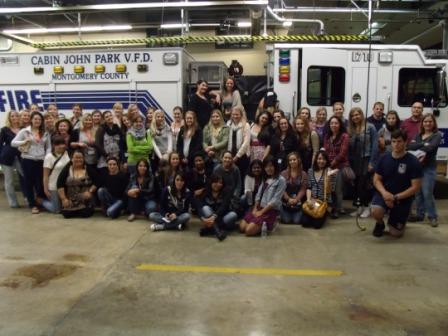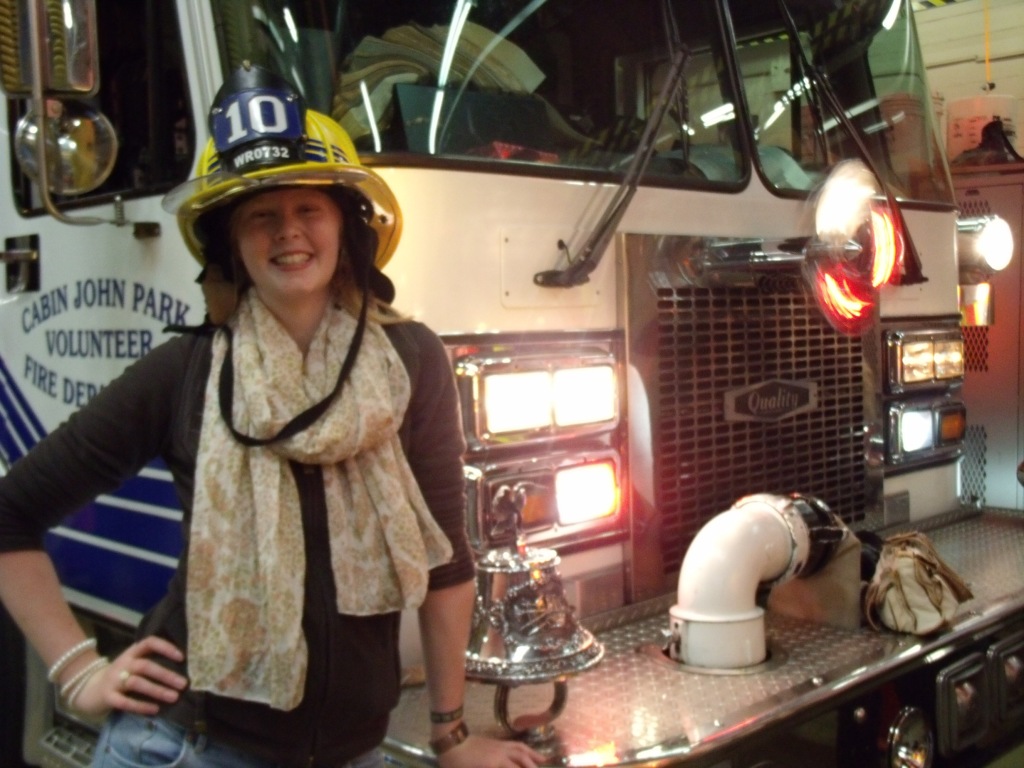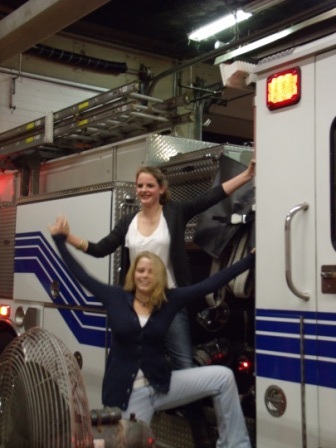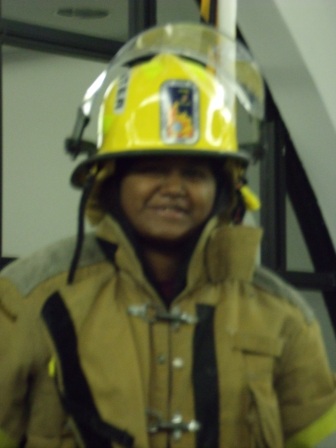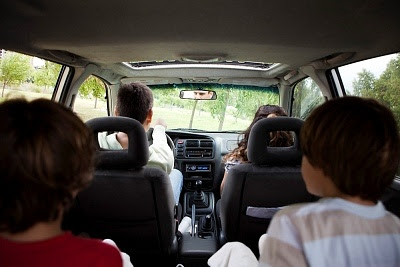
Pick-up up from school is a very important time for learning about your child’s school day and so much more…
Here is some great information from PBS Parent:
How Was School Today? Are you hoping to avoid the “okay” or blank stare in response to your daily question?
Be sure to listen – JUST listen. When kids learn that these conversations turn into parent “you shoulds” or are otherwise laden with adult hidden agendas, they develop ways to avoid telling the real story. Does “Who did you eat lunch with?” really mean I’m worried that you don’t have any friends.
Does “How was math class today?” really mean did you get in trouble again today?
One way to get off on a different footing is to start with “I had a great day…” or “I had a frustrating day…” or “I made a stupid mistake today…”. This helps create a conversation instead of an investigation.
You may want to address issues that come up, but give your child a chance to take ownership of any problems and communicate a belief that your child can take care of him or herself. Listen attentively for hints as to what your child needs from you. Empathy, encouragement, problem solving?
I’ve collected some thoughts from some on my favorite experts on how to make this conversation meaningful.
Talking with Kids About School: Why is it so hard to talk about school? Parents often get exasperated with kids’ monosyllabic answers to their simple questions. That one well-intentioned line, “How was school today?” has probably provoked more bad feelings between parents and kids than either party ever intended.
“‘How was school today?’ is a frustrating question for both parents and kids,” notes Michael Thompson, Ph.D., author of “The Pressured Child.” “Parents never get the answer they want and often don’t understand how difficult this question really is. Without meaning to, parents are asking for a summary but kids don’t summarize the way adults do. So most kids just say ‘fine’ or try to avoid the question entirely.” And then the problem escalates. “Many parents will repeat this question if they don’t get a good enough response because they don’t know how else to ask it,” adds Lawrence Cohen, Ph.D., author of “Playful Parenting.” Fortunately, some simple strategies can get kids and parents talking and listening. “What was fun? What was the worst part of the day? Did your teacher explain that math homework? How did soccer go?” However, communicating effectively about school goes deeper than just asking the right questions. “What are the goals of talking with kids about school and what is the role of the adult in these conversations?” asks Diane Levin, Ph.D., professor of education at Wheelock College. “More than just finding out how their day was, we want to help kids become problems solvers and independent learners. Good conversations help kids see we care about their lives, that we are there to support them, and to help them develop strategies for solving problems themselves.”
Try these strategies to get kids and parents talking about school and listening to each other in meaningful ways. http://www.pbs.org/parents/education/going-to-school/talking-with-kids-about-school/
Understanding Each Other: So why don’t our kids want to tell us about their day at school? And why do we think we need to know every detail? And how can we become more effective listeners? To find out, take a look at the situation from your child’s perspective and compare it to your own.
“How was school?” and “How are you?” are not really questions — they’re greetings. A problem arises because we expect an answer. But the question is so general that it’s difficult for kids to answer, particularly when they are on overload from a challenging day at school. “What parents are trying to do when they ask ‘how was school?’ is to make contact with their child,” explains Michael Thompson, Ph.D. But we don’t realize that the question “how was school” may not be the most effective way to connect.
Kids often think adults ask too many questions.“And they are right,” adds Thompson, “we do. Adults are often just trying to start a conversation and don’t understand that their questions make a child feel put on the spot. Be aware that a question from a big person like you can place demands on a small child, even though you don’t mean it that way.””It’s important to also be clear why you are asking children about school. Is it merely chit chat, are you looking for something more meaningful, and are you communicating in ways that relate to your child’s experience?” notes Diane Levin, Ph.D.
School can be hard for kids and that’s why it’s hard for them to talk about it. Every day at school, kids get things wrong and make mistakes. That’s how they learn. But generally, kids don’t want to come home and say, “I was frustrated by my mistakes but I learned from them.” They would rather come home and say, “I got everything right.” Their feelings about meeting the expectations of their teachers, their parents, and themselves can make school a challenging topic to discuss.
So — should we stop asking questions? No. But you might ask fewer ones and try not to get crazy when your kids don’t respond the way you want them to. Remember that if your kids don’t want to talk, it’s not a rejection of you. When you do speak, try to find ways to discuss what’s meaningful to both your child and you, because this shows that you care. http://www.pbs.org/parents/education/going-to-school/talking-with-kids-about-school/understanding-each-other/
Questions that Work
Whatever your child’s age, a specific question, or even a specific statement, may prompt more of a response than the more general “How was school today?” If you listen to your child’s answer, and (if the opening is there) ask another question, you’ll be on your way to a meaningful conversation.
Ask kids about what interests them:
· “What did you do that was fun today?”
· “Did anything funny happen?”
· “What did you like best today?”
· “Did you read any new books in library?”
· “How did the science experiment turn out?”
Ask about specific people and events in your child’s life:
· “Did Mrs. Stone go over that math test?”
· “What did Mr. Zeiner talk about in social studies?”
· “Who’d you sit next to on the bus?”
· “Did Mrs. Davis call on you today?”
· “Are you and Helen still having a hard time?”
· “How are you and Charlie doing?”
· “What do your friends think about the substitute teacher?”
Ask kids about what bugs them. Everybody likes to complain, so if your child is in a bad mood, ask what’s wrong. You might find that within a few minutes, your child is telling you what she likes. You might ask:
· “Anybody get on your nerves today?”
· “Was your teacher annoying again?”
· “Was there anything really hard for you?”
Make comments about schoolwork. You can look over your child’s work or the teacher’s weekly class note, and ask:
· “Wow, what a cool picture of a squirrel. I like the bushy tail. What does he use it for?”
· “Can you explain photosynthesis to me?”
· “What is a whole number, anyway?”
http://www.pbs.org/parents/education/going-to-school/talking-with-kids-about-school/questions/

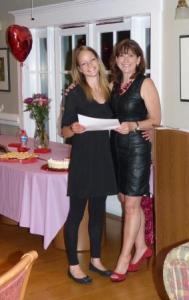

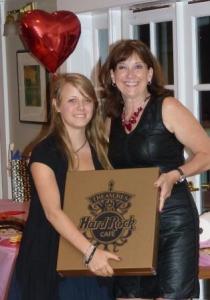
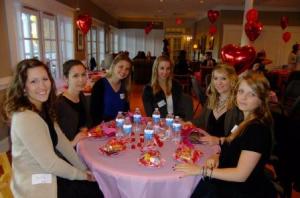 p music. A DVD of the “yearbook” was in a goody bag at each place setting. The highlight of the evening was the Award Ceremony in which Victoria presented each Au Pair with a certificate congratulating her for an exceptional skill indicated by her Host Parents. This was a surprise to all the Au Pairs who were touched and amused by the nominations: Most Conscientious Au Pair, Best Crepe Maker, The Best Teacher, The Best Lego Builder, The Best Mind Reader of Her Host Mom’s Needs, The Most Responsible and Organized Au Pair etc.
p music. A DVD of the “yearbook” was in a goody bag at each place setting. The highlight of the evening was the Award Ceremony in which Victoria presented each Au Pair with a certificate congratulating her for an exceptional skill indicated by her Host Parents. This was a surprise to all the Au Pairs who were touched and amused by the nominations: Most Conscientious Au Pair, Best Crepe Maker, The Best Teacher, The Best Lego Builder, The Best Mind Reader of Her Host Mom’s Needs, The Most Responsible and Organized Au Pair etc. 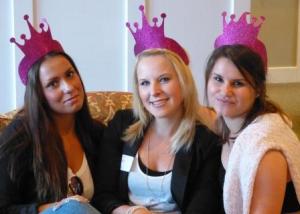 The final award was given to Jasmin from Austria who had earned the title of top three Au Pairs nationwide for 2013 by Au Pair in America Headquarters and went on to compete in the International Au Pair Association’s Au Pair of the Year competition. The nomination was unusual in that it was for both Jasmin and her sister Verena (who had been the Host Family’s Au Pair last year). The unusual combined nomination submission was about these two amazing young women who over 2+ years supported, loved and assisted the Host Family during the illness and subsequent passing of
The final award was given to Jasmin from Austria who had earned the title of top three Au Pairs nationwide for 2013 by Au Pair in America Headquarters and went on to compete in the International Au Pair Association’s Au Pair of the Year competition. The nomination was unusual in that it was for both Jasmin and her sister Verena (who had been the Host Family’s Au Pair last year). The unusual combined nomination submission was about these two amazing young women who over 2+ years supported, loved and assisted the Host Family during the illness and subsequent passing of their wonderful Host Dad.
their wonderful Host Dad.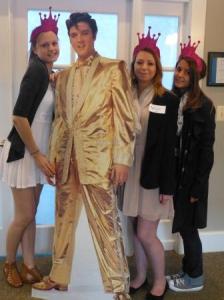
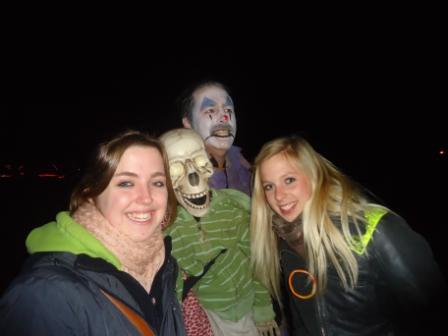 It was a dark and stormy night….actually it was a dark and beautiful night out in Dickerson at Markoff’s Haunted Forest. Au Pairs huddled together as they entered the forest which was described as the “scariest ever”. An experience none of the au pairs will forget!
It was a dark and stormy night….actually it was a dark and beautiful night out in Dickerson at Markoff’s Haunted Forest. Au Pairs huddled together as they entered the forest which was described as the “scariest ever”. An experience none of the au pairs will forget!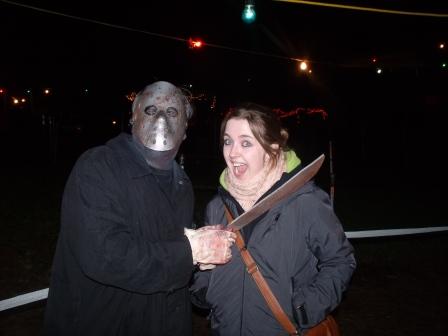
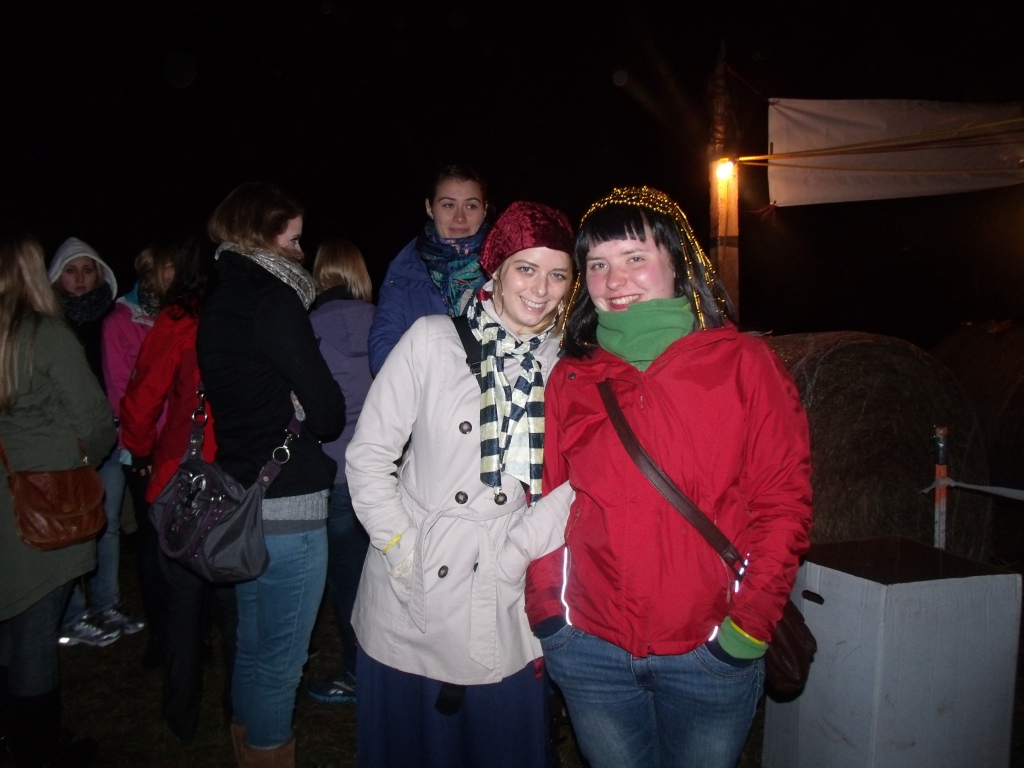

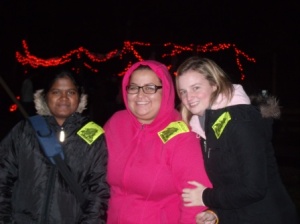
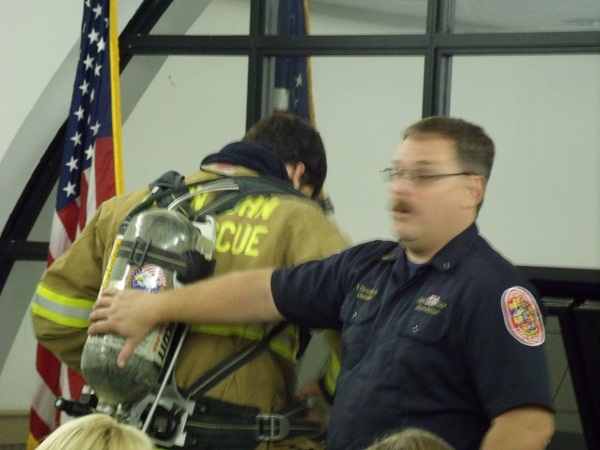 Potomac Shoreline Cluster Au Pairs (Bethesda, Cabin John, Glen Echo and Potomac) on September 20th visited the Cabin John Firehouse #10 on River Road for a lesson in fire safety including: when to phone 911, importance of a family having a meeting point outside the house in the event of a fire, locating 2 exits from the home, what to do in a power outage, what to do in the event of flooding roads etc.
Potomac Shoreline Cluster Au Pairs (Bethesda, Cabin John, Glen Echo and Potomac) on September 20th visited the Cabin John Firehouse #10 on River Road for a lesson in fire safety including: when to phone 911, importance of a family having a meeting point outside the house in the event of a fire, locating 2 exits from the home, what to do in a power outage, what to do in the event of flooding roads etc.